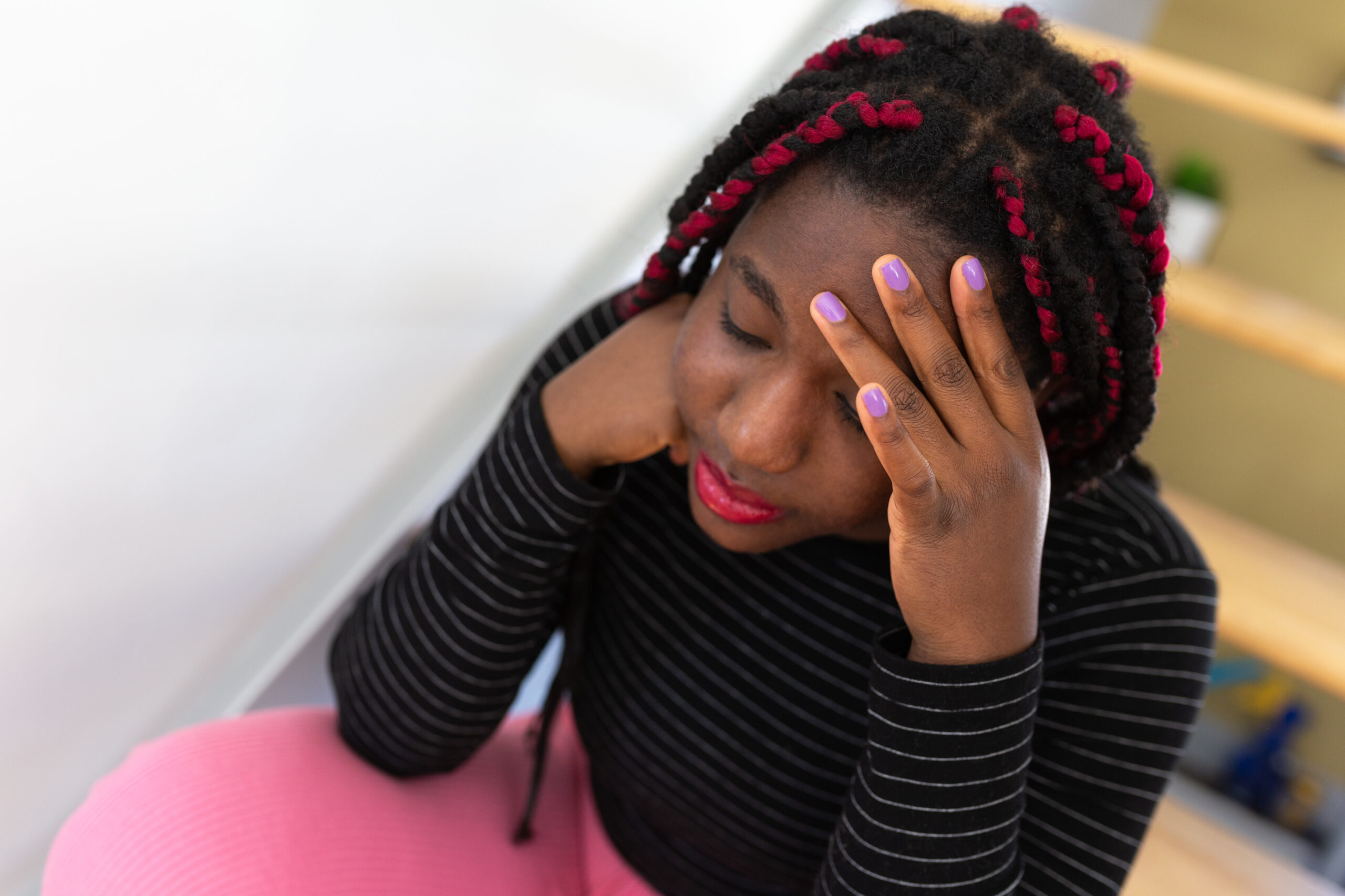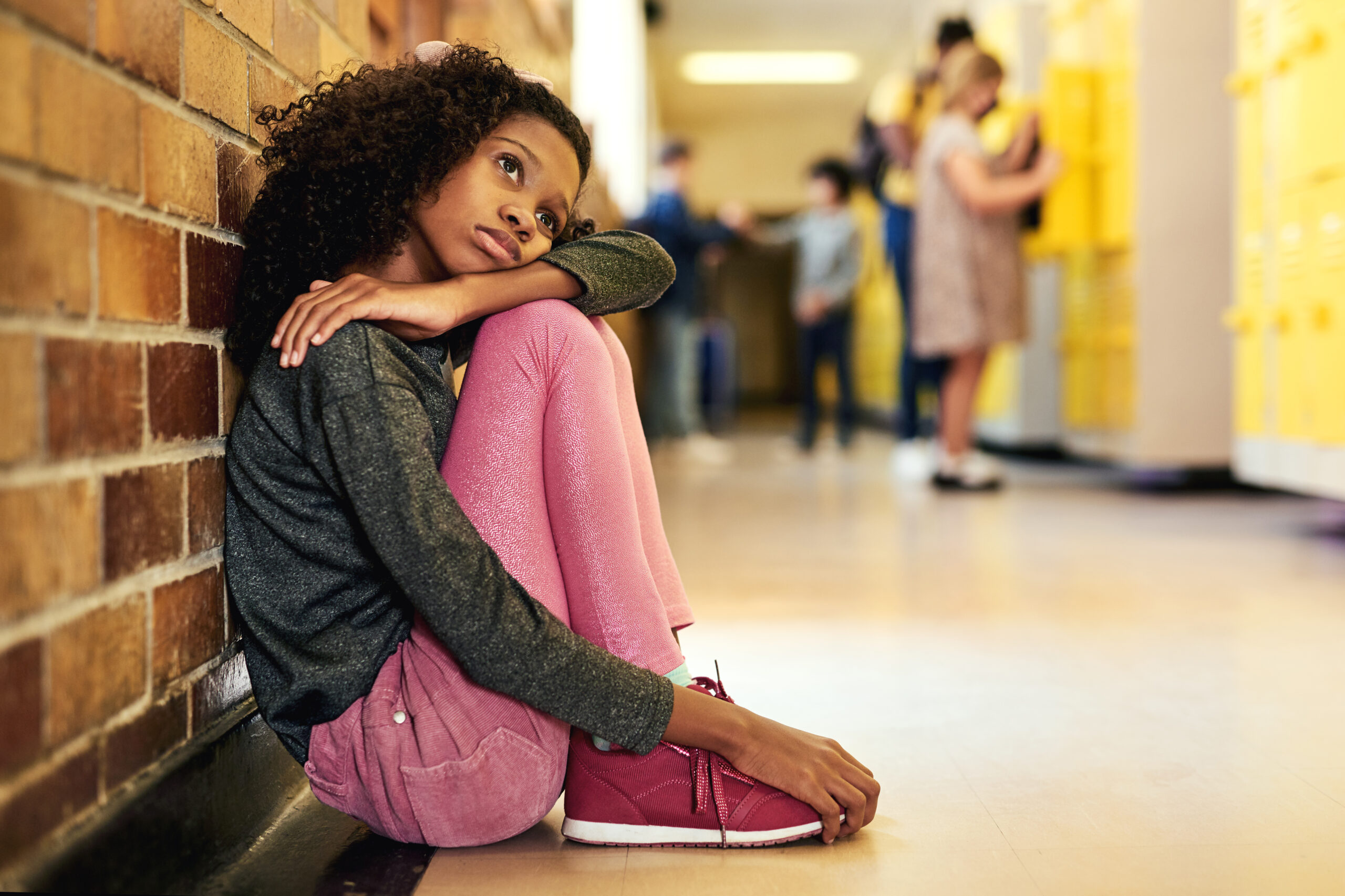
Social anxiety is real. The persistent fear of being watched or judged by others isn’t just in your head – it’s a more common feeling than you think. Some of your friends, colleagues, peers, and even loved ones could be experiencing these crippling feelings, but may not necessarily have the language to express what and how they’re feeling. Thankfully, Girls United spoke to a certified social worker and mental health professional about social anxiety, methods of treatment and how to support someone you know and love.
According to Fanny Sesay, LCSW, social anxiety disorder, also referred to as social phobia, occurs when someone has fear or anxiety about one or more social situations in which the individual is exposed to possible scrutiny by others. Social anxiety triggers include – but aren’t limited to – meeting new people, public speaking, being watched while performing in front of an audience (i.e. sports, taking photos, eating, or reading in-class), talking to authoritative figures, and being bullied.
“Social anxiety can look like a teenager that never eats lunch at school and other social areas where peers are present due to fear of peers judging them about eating. This could cause the teenager to be significantly underweight and not have energy to perform well in school,” Sesay told Girls United.
Social Anxiety Disorder (SAD), according to Sesay, is diagnosed when the person’s anxiety or fear debilitates their daily activities such as performing basic skills at work or school. Not to be confused with what Sesay refers to as “the occasional shyness,” SAD can be a disruption of your routine. She explained, “These behaviors have to be observed for 6 months or more and occurring with the absence of alcohol/drug influence, other medical conditions, other mental health disorders [such as] autism, body dysmorphic disorder or panic disorder.”
“As an adolescent social worker at a pediatric clinic, I have noticed that a lot of teenage girls reported they have been using the surgical mask as a shield for their insecurities regarding acne and other facial features,” Sesay shared with Girls United about how Generation Z is impacted by insecurities and social anxiety. “Most of them stated that they have no intentions of taking off the mask once the mandate is lifted. This is interesting because millennials can’t wait to get the mask off. Generation Z is used to masking the things they feel are imperfect.”
Below, take a look at the insight that Sesay shared with Girls United about coping with social anxiety, how to support loved ones with social anxiety, and how social anxiety impacts Generation Z.

How Generation-Z Has Been Impacted By Social Anxiety And The Pandemic
While Sesay notes that she doesn’t believe that SAD is experienced by one generation more than the other, she adds that there is a metaphorical “magnifying glass” on mental health within this specific generation, which increases visibility in the conversations. “I do believe Generation Z has experienced globally traumatic events that lend itself to an increase in Social Anxiety Disorder. Generation Z spent pivotal years on lockdown during the pandemic where they also experienced the rise of social media,” she explained.
The period of adolescence is one where your personality begins to form and you discover your voice and independence away from the thoughts and impressions of others. During which time, a teenager or young adults will begin to make up their minds and express individual views on pop culture, politics, relationships, and more. While millennials and up were able to do this at school, at the mall, or during work hours, Generation Z had to figure themselves out on social media and grow up by looking at their phones, computer screens, and televisions within the walls of their own homes.
“During the pandemic, they were forced to do this at home while on social media. Social media has normalized perfection by making it the bar for anything Generation Z shows their peers. This opens the door to being ashamed or feeling judged for anything less than perfect,” Sesay explained. “Teenagers may be fearful to show their realities and this can ultimately impact their ability to show up as themselves. It is easier to build a social media persona and have opinions that you may not share in person. This is a difficult transition and some people can develop Social Anxiety Disorder as a result.”

Tips And Tricks For Teenagers And Young Adults Struggling To Cope With Social Anxiety
Cognitive Behavior Therapy And Exposure Therapy: “It is helpful to talk to someone about these feelings so that you can challenge these thoughts and learn to identify when you are triggered. Therapy can also help you create healthy coping mechanisms. Exposure therapy encourages you to make an effort to be more social [and] will require you to try things that typically make you anxious and process your feeling around them. It will help you realize that your negative thoughts may not be true and learn how to deal with the realities of the social situation.”
Breathing: “Breathing exercises before having to enter a social situation that typically makes you nervous.”
Positive Self-Talk: “Challenge your negative thoughts and replace them with positive or realistic thoughts. For example, ‘People are going to think I am sloppy if I eat in the lunchroom.’ Replace it with, ‘Are people even paying attention to me?,’ or ‘Everyone is eating and it is a normal task’.”
Find Your Tribe: “Talk to close friends about your social anxiety. Community is always a great resource to assist with fear or nerves. Use your community to make you feel comfortable in spaces or experiences where you would not typically feel comfortable.”

How To Support A Loved One Who Is Experiencing Social Anxiety
Don’t Be Dismissive: “Stay away from dismissing someone’s fears around a social situation. For example, it’s not helpful to tell your friend that her anxiety around eating in front of others is stupid, childish, or weird.”
Positive Affirmations: “Use positive affirmations to encourage your loved one to overcome fears or anxiety. Examples could be, ‘Girl your energy, style, and personality are so amazing that no one is ever going to care about the way you eat,’ or ‘Your food smells and look so good, I’m sure people wish they can have some and are not worried about the way you eat.'”
Suggest Therapy, But Don’t Be Pushy: “If you suspect that your loved one is experiencing a social anxiety disorder, encourage them to seek therapy.”
Get Up, Get Out, Do Something: “Be a companion/partner in anxiety-provoking activities to help build their confidence and show your support. This will encourage your loved one to take risks. Two are better than one. Eat right next to them in the lunchroom. If you have a friend that can sing but is afraid of performing, you can invite them to do karaoke with you and be a supportive partner on the stage.”
Photo Credit: Getty Images/FatCamera